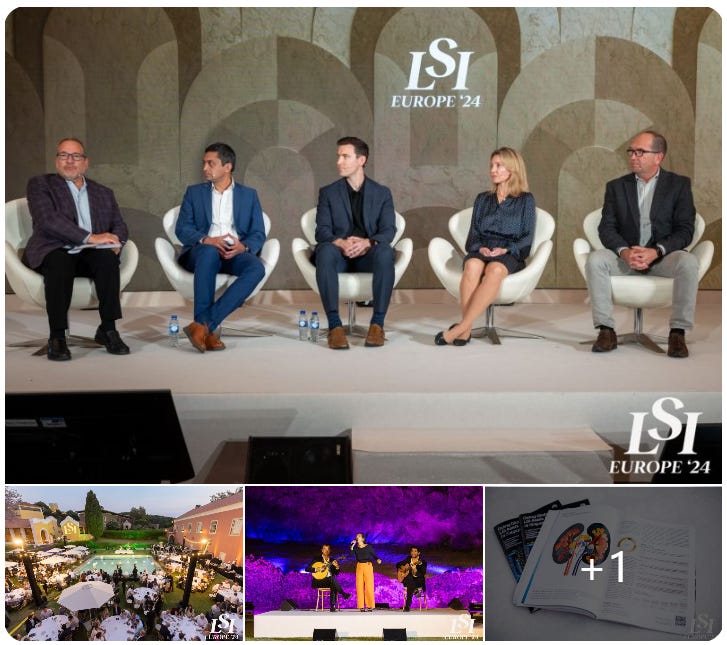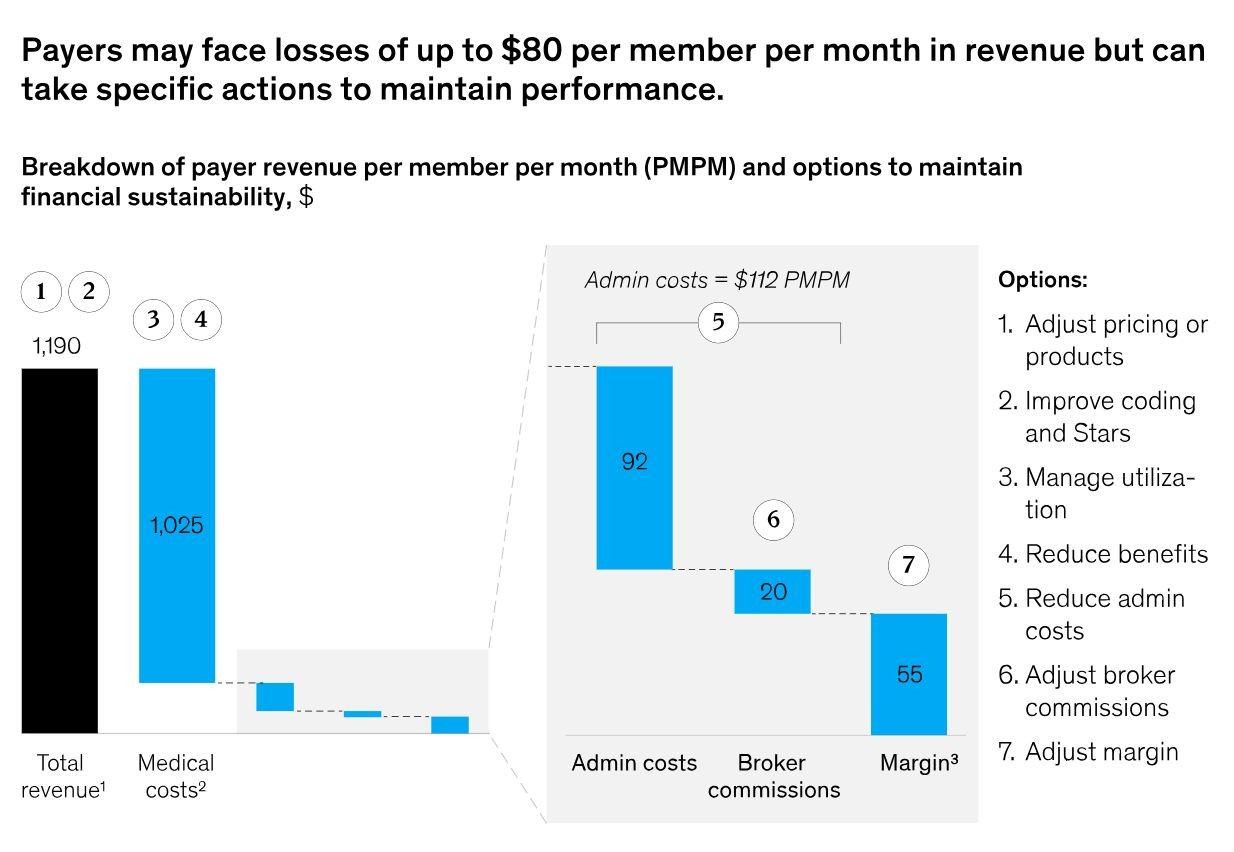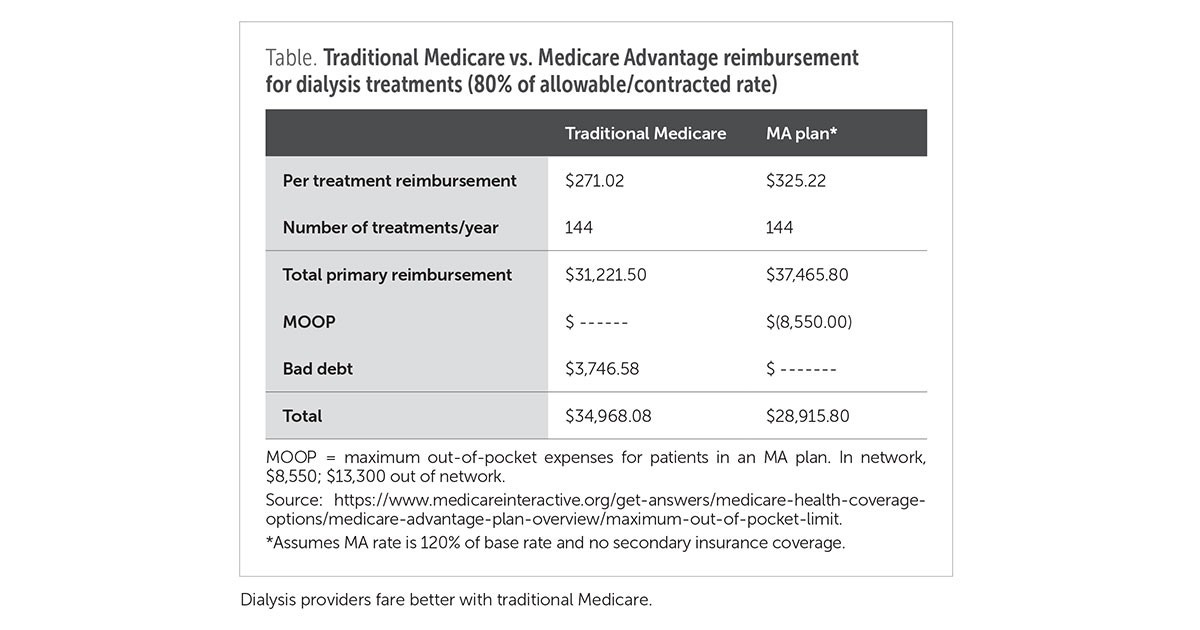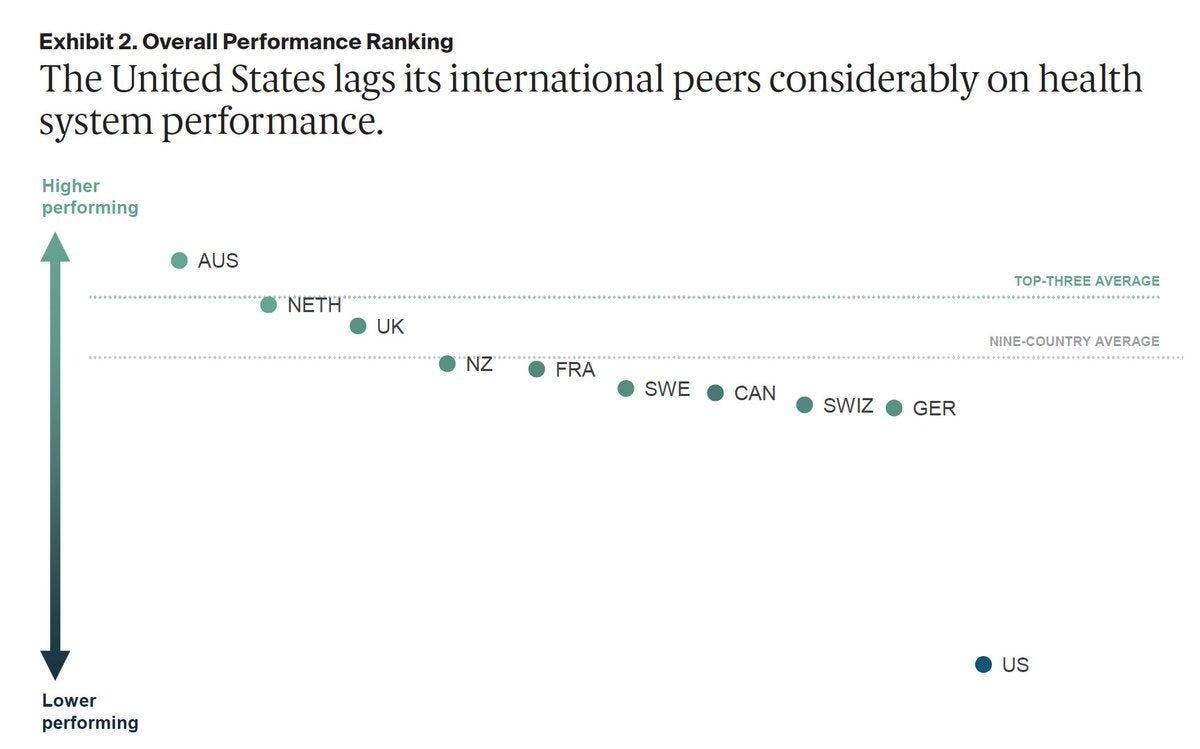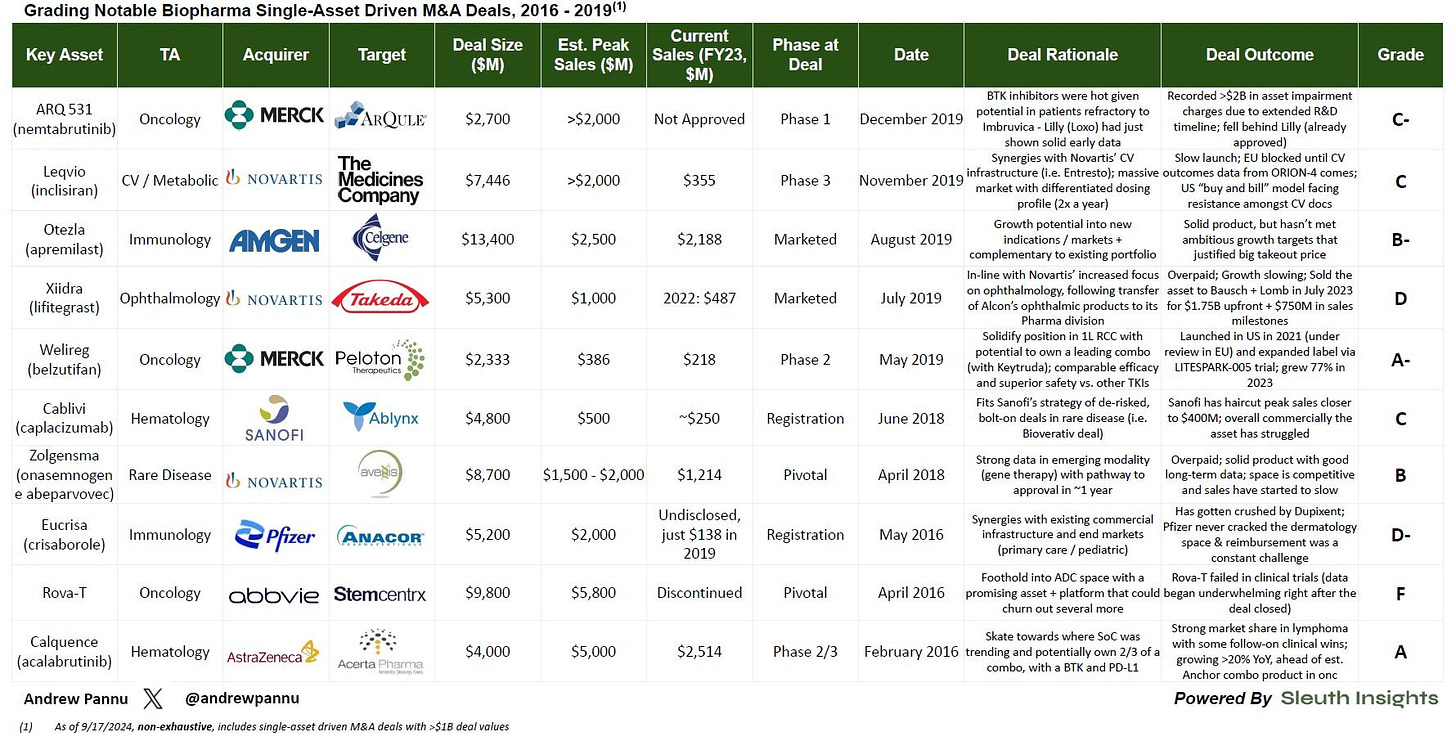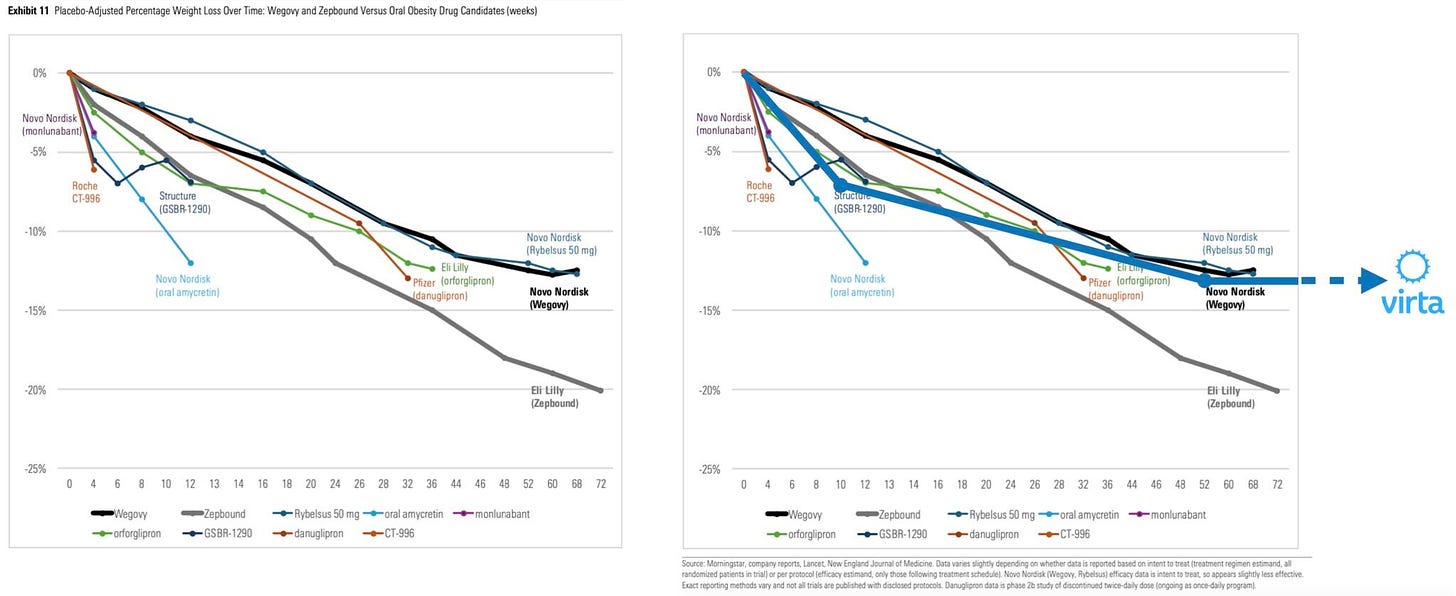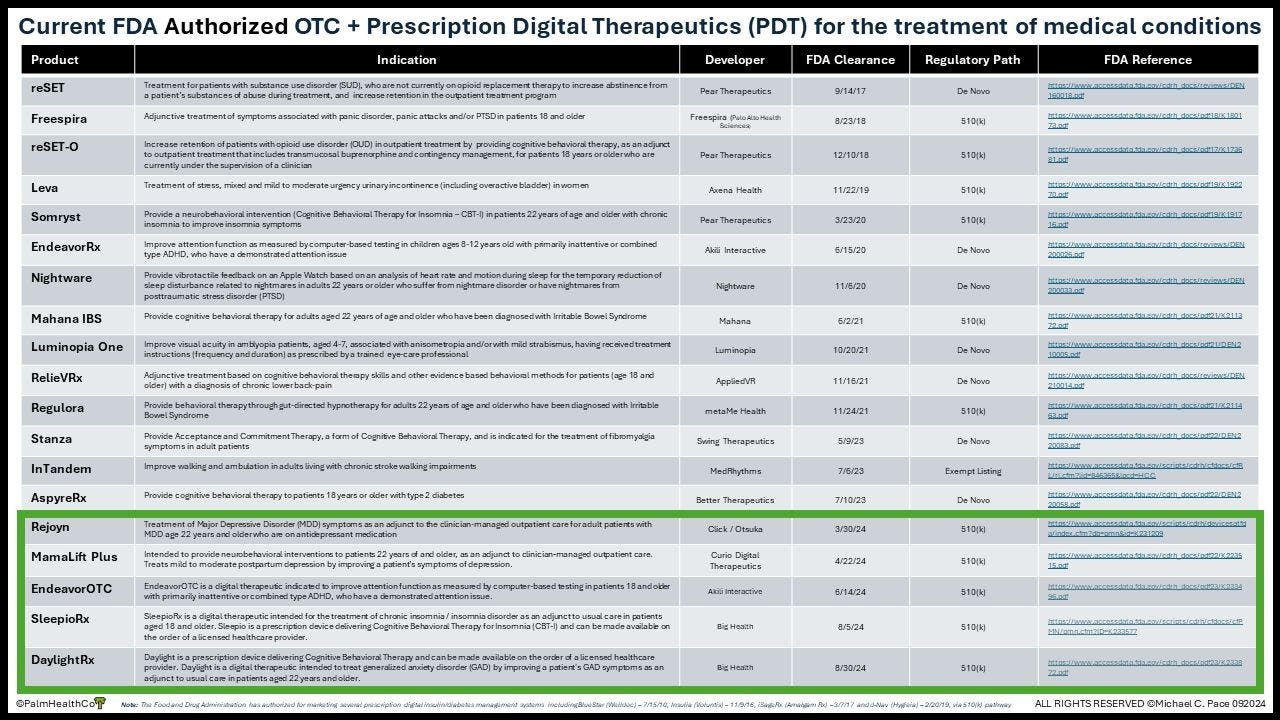
Signals From Sintra: This Week in Global Kidney Innovation
Reflections and good reads from the road (plus pictures, of course!)
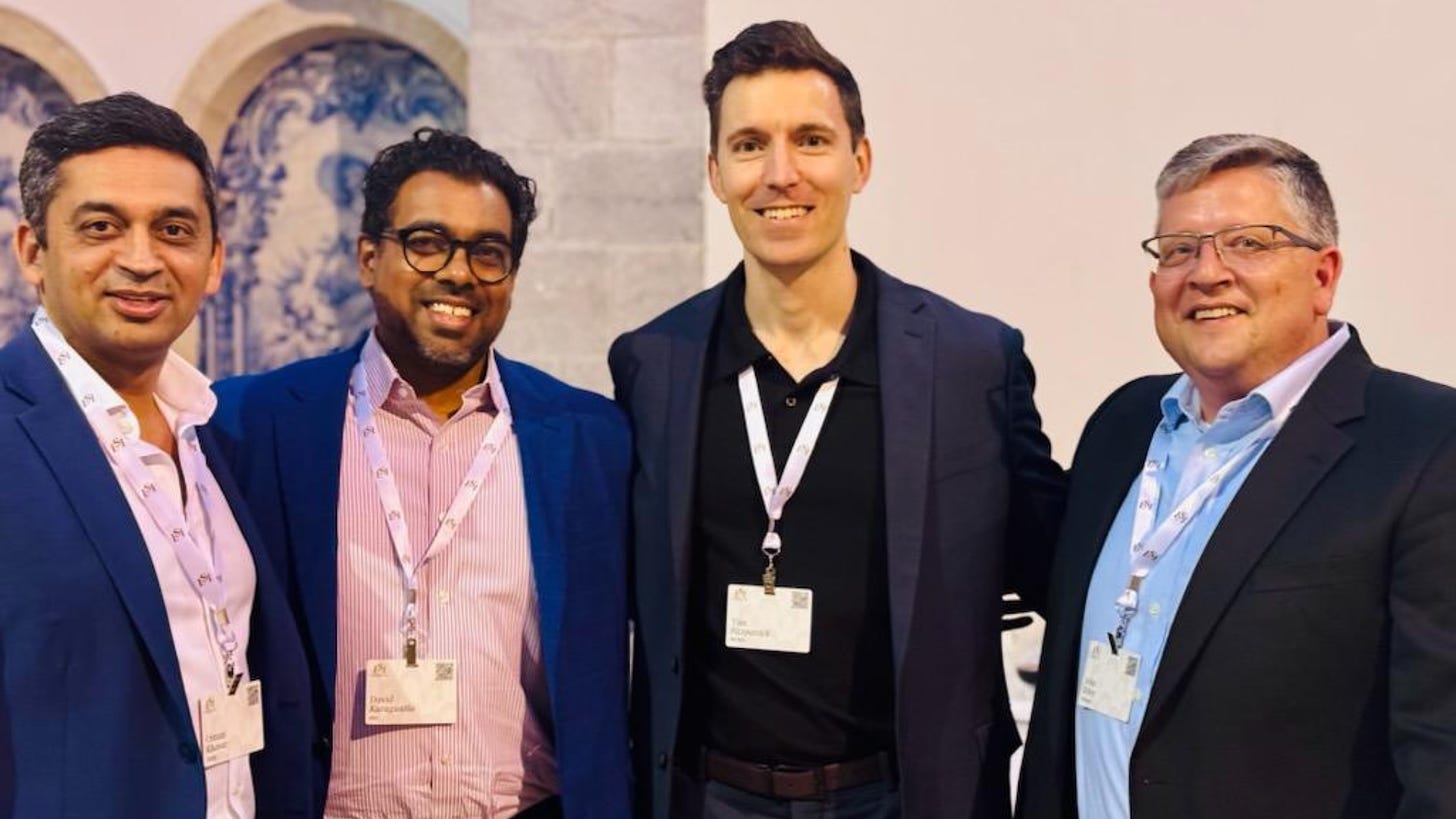
After a whirlwind week+ on the road, spanning 6 time zones (with 4 more to go by Wednesday), we’re back in orbit with a fresh list of signals from the world of kidney innovation. This trip has been a strong reminder that kidney health is a global mission—one that will be solved through international collaboration, not the efforts of any one country (or company) alone. I’m excited to spend more time with founders, patients, optimists, and investors around the world. If you’re building for this [space], make sure the Signals community knows what you’re working on.
This issue is presented by IKONA, the leading VR platform for kidney education & training, designed to support ESKD treatment pathways and workforce engagement in dialysis clinics, practices, and beyond.
This week
NANI's Dr. Tanna on value-based kidney care
McKinsey explores Medicare Advantage challenges
Independent dialysis providers struggle under MA
A Portrait of the Failing U.S. Health System
Transplant society asks CMS to delay launch of IOTA model
Grading 10 notable single-asset biopharma M&A deals from 2016-2019
Revisiting the GLP-1 sustainability narrative
Several firsts for FDA authorized digital therapeutics in 2024
Why CVCs are outshining traditional VCs
Voices from across the kidney community
Signals From Sintra
That's a wrap on LSI Europe '24. In the course of building a medtech company, there aren't many times or places where you find yourself in a room surrounded by your peers, mentors, and people who can accelerate your impact in this world. This week was one of them. In typical LSI fashion, this emerging medtech meeting brought together innovators, investors, and strategics building the next generation of medical devices and technologies. You'll be proud to know we had a strong kidneyverse showing, and growing stronger by the event. As Osman put it during our panel: they got it right— we had one heart (panelist), and two kidneys. For what it's worth, I played the role of left kidney.
Signals
NANI's Dr. Tanna on value-based kidney care
In an episode of Nephrology Today, host Michelle talks with Dr. Manish Tanna, President and practicing nephrologist at Nephrology Associates of Northern Illinois and Indiana (NANI), about the shift towards value-based care in nephrology. Dr. Tanna discusses how this patient-centered approach focuses on better outcomes at lower costs, the future of healthcare beyond the fee-for-service model, and the challenges nephrology practices face in adapting to this change. They discuss how educating patients, reducing hospitalizations, and improving kidney transplantation outcomes are central to value-based care.
McKinsey explores Medicare Advantage's negative margins
The recent report shows us why Medicare Advantage (MA) plans continue to face economic challenges that are unlikely to abate any time soon. First-quarter earnings calls revealed payers’ concerns and responses to the pressures, and an expectation of reduced margins through 2025 on their MA books of business. Large national payers seek to “reset” products with a focus on pricing discipline and clinical and operational excellence to promote growth while returning to historical 3–4 percent margins. In the meantime, the effects on seniors are likely to include benefits reductions, premium increases, and confusion and increased shopping triggered by negative Annual Notice of Changes in the upcoming annual enrollment period. How will this impact kidney patients?
Independent dialysis providers challenged under Medicare Advantage
Passage of the 21st Century Cures Act in 2021 allowed Medicare beneficiaries with end-stage kidney disease to enroll in Medicare Advantage plans regardless of their previous coverage or when they were diagnosed. In codifying these regulatory revisions, CMS sought to “empower [ESKD beneficiaries] to choose the type of Medicare coverage that best meets their needs.” As a result of this statutory change, CMS projected that an additional 83,000 beneficiaries would be enrolled in a Medicare Advantage (MA) plan by 2026, making the share of ESRD beneficiaries enrolled in MA roughly equal to that of non-ESKD beneficiaries.
That estimate has changed significantly. According to an analysis by the Medicare Payment Advisory Commission in its March report to Congress, enrollment of dialysis beneficiaries in MA plans has increased more rapidly than was initially anticipated. Between December 2020 and January 2021, enrollment increased from 27% of the MA population to 36%. By December 2022, just 2 years after the 21st Century Cures Act (Cures Act) revisions, the share of dialysis beneficiaries enrolled in MA plans had already reached 47%.
A Portrait of the Failing U.S. Health System
A new report from The Commonwealth Fund paints a bleak picture of US healthcare. In short, after comparing 10 countries, the United States offers the worst outcomes and performance at the highest cost. Analysis of 70 health system performance measures in five areas: access to care, care process, administrative efficiency, equity, and health outcomes. The U.S. continues to be in a class by itself in the underperformance of its health care sector. While the other nine countries differ in the details of their systems and in their performance on domains, unlike the U.S., they all have found a way to meet their residents’ most basic health care needs, including universal coverage. Kidney care is the one area we actually have universal coverage, more or less, and yet, we clearly still face tremendous hurdles in access and outcomes (see above story).
Transplant society asks CMS to delay launch of IOTA model
The American Society of Transplantation has asked CMS to delay up to a year the launch of a 6-year demonstration aimed at increasing kidney transplants and improvements in graft survival. CMS received 160 comments on the proposal, which was released in May. Based on the proposed rule, approximately 90 transplant centers would participate in the model. Eligible hospitals would be non-pediatric transplant hospitals with an active kidney transplant program that perform an annual average of 11 or more kidney transplants in the 3 baseline years before the start of the model in 2025. In a letter from AST president Dr. Jon Kobashigawa, concerns include how the transplant centers are being selected for participation, the 6-year timeline, how baseline and performance metrics are determined and the amount of the financial incentives being offered for centers that improve transplant rates.
“ … AST recommends that IOTA not be implemented as proposed based on concerns about operational challenges, adverse financial impacts and potential disruptions to transplant patient care that may result from it.”
Grading 10 notable single-asset driven M&A deals from 2016-2019
Andrew Pannu's latest LinkedIn post on M&A offers key takeaways for anyone involved in business development (BD) in biopharma. He highlights the challenges of managing both clinical risk and competitive pressures, noting that even successful assets can be derailed by better-positioned competitors or poor reimbursement outcomes. Pannu stresses the importance of strong product launches, pointing out that struggling assets rarely recover once a bad first impression is made. He also shares strategies for BD success, such as operating within a "zone of competency," maintaining strong competitive intelligence, and targeting untapped patient segments to differentiate and capture market share.
Revisiting the GLP-1 sustainability narrative
Sami Inkinen, CEO of Virta Health, shared a post comparing GLP-1 induced weight loss across well-known brands and upcoming oral treatments with Virta's nutrition-based results. He points out that while drugs like GLP-1 have shown significant weight loss, the narrative that drugs are the only solution isn't entirely accurate. Virta's nutrition-only approach, backed by peer-reviewed data, has delivered -13% sustained weight loss over 1-2 years without the need for medication. Sami raises an important question: how many people can or want to stay on weight-loss drugs long-term, and what happens when they stop? Virta’s model demonstrates lasting results without medication.
“Below is Virta's (nutrition only with proper support) weight loss overlay on the same chart. Bottom line, it is possible to deliver substantial (-13%) and sustained (1y+ and 2y+) weight loss nutritionally.”
Several firsts for FDA authorized digital therapeutics in 2024
Michael Pace highlights key milestones for digital therapeutics (DTx) in 2024. The FDA has approved five software-as-a-medical-device (SaMD) treatments, the most ever in a single year. Notably, Virtual Therapeutics' EndeavorOTC became the first over-the-counter (OTC) SaMD treatment, and Otsuka and Click Therapeutics introduced the first DTx platform developed by a pharmaceutical company for major depressive disorder. The landscape continues to evolve, with three companies now holding multiple FDA-authorized DTx products: PursueCare, Virtual, and Big Health.
Why CVCs are outshining traditional VCs
A recent piece in GCV shows us why corporate-led funding rounds account for larger and larger shares of total venture investment. In late August, the Wall Street Journal noted an unnerving trend: Nearly 30% of all venture-funded companies, as of the second quarter of this year, “will likely be out of money by year-end”, reported the Journal, citing a recent Silicon Valley Bank (SVB) report. And, the Journal also reported, more than a quarter of all venture-backed firms are both shrinking and unprofitable, per SVB research. For that reason, more growth-stage firms are looking beyond traditional venture firms and, increasingly, toward corporate venture capital or CVC—which is becoming the go-to option for a rising number of founders in today’s uncertain economic ecosystem.
“In 2013, corporate venture capital accounted for 34% of all dollars raised by US startups, per the NVCA 2024 Yearbook; in 2023, corporate investment represented 48% of total dollars invested.”
Kidneyverse Voices
Each week we bring you a list of events, moments, insights and ideas from across the kidney community. Click each name to learn more.
Laurel Damashek: "8 years ago, everything changed when I woke up with a new kidney thanks to my dear friend’s generosity. It’s true what they say: you actually do feel miraculously ~better~ immediately after a kidney transplant. Seems fitting that today I just landed in Chicago for a rare kidney disease scientific meeting, on my way to another nephrology conference. I’m so grateful that I get the opportunity to pay it forward."
Gopa Green: "I’ll be joining a knowledgeable and dedicated group of panelists to discuss the continued development of a Kidney Care Health Equity framework at the inaugural Kidney Community Health Equity Summit in Washington DC on Sept 28th. I’ve had the honor of being a part of this interdisciplinary workgroup with delegates from our entire kidney community, led by the incomparable Dr. Sarrah T. Johnson, to develop this framework to continue to address health inequities and disparities."
Barbara Gillespie: "Please join us to help define appropriate FSGS trial endpoints…scan below to register and attend!" The FDA and NephCure, ISGD, KHI, and NKF have expressed a willingness to leverage their combined strengths for the joint development of the substantive actions of this workshop to facilitate the development of safe and effective treatments for focal segmental glomerulosclerosis (FSGS).
Curtis Warfield: "Thank you to American Kidney Fund for allowing me to assist during the Congressional Black Caucus Foundation Conference. It was a great experience attending sessions and seeing how many sessions dealt with better care and awareness of kidney disease. Great seeing friends Patrick O. Gee, Sr., PhD., JLC, Nichole Jefferson, M.J, John R Brandon B., Sharron Rouse meeting new friends like Jorden Albright.
Qasim Butt: "Just presented on our application of AI in kidney care and dialysis at the Renal Healthcare Association conference in Las Vegas. One of the things I am most proud of are the clinical dashboards that we created meant for the eyes of doctors, nurses and administrators - helping to paint the course of the patient’s dialysis journey. Not only do they simply layout some of our AI predictions on patient outcomes such as hospitalizations, they also lay out a great way to retrospectively analyze the patient experience over long periods of time."
Geoffrey Martin: "Enjoyed talking to Ruth Reader from POLITICO at the Congressional Black Caucus to discuss the CKD crisis in America and the need for better incentives and quality measures around screening for populations at risk. We live in a broken Healthcare eco-system that incentives sick care over early detection and avoidance costing Medicare $135B/year caring for patients with chronic kidney disease. Thanks also to the National Kidney Foundation for all the important work they are doing to raise awareness and drive policy change around this disease impacting 37 million Americans."
Todd Dunn: "Last week was National Nephrology Nurse Week. This caused me to reflect on my interest in the kidney. As a result, I dug up some notes from past meetings. On March 26th, 2019, I started investigating the dialysis business model... What we found in our collaborative observation and interview work, was that the current business model and technology used in dialysis were far from what they needed to be for our nurses and patients. We uncovered an incredible amount of unnecessary friction."
John Erbey: "Excited to have attended LSI Europe '24 in the beautiful city of Sintra, Portugal! It was an incredible experience reconnecting with old friends and forging new connections with some of the brightest minds in medical device innovation. At Roivios, we're making significant strides in kidney disease management with our JuxtaFlow® Renal Assist Device. Grateful for the opportunity to present our groundbreaking work and share how our innovations are set to transform kidney health and improve patient outcomes."
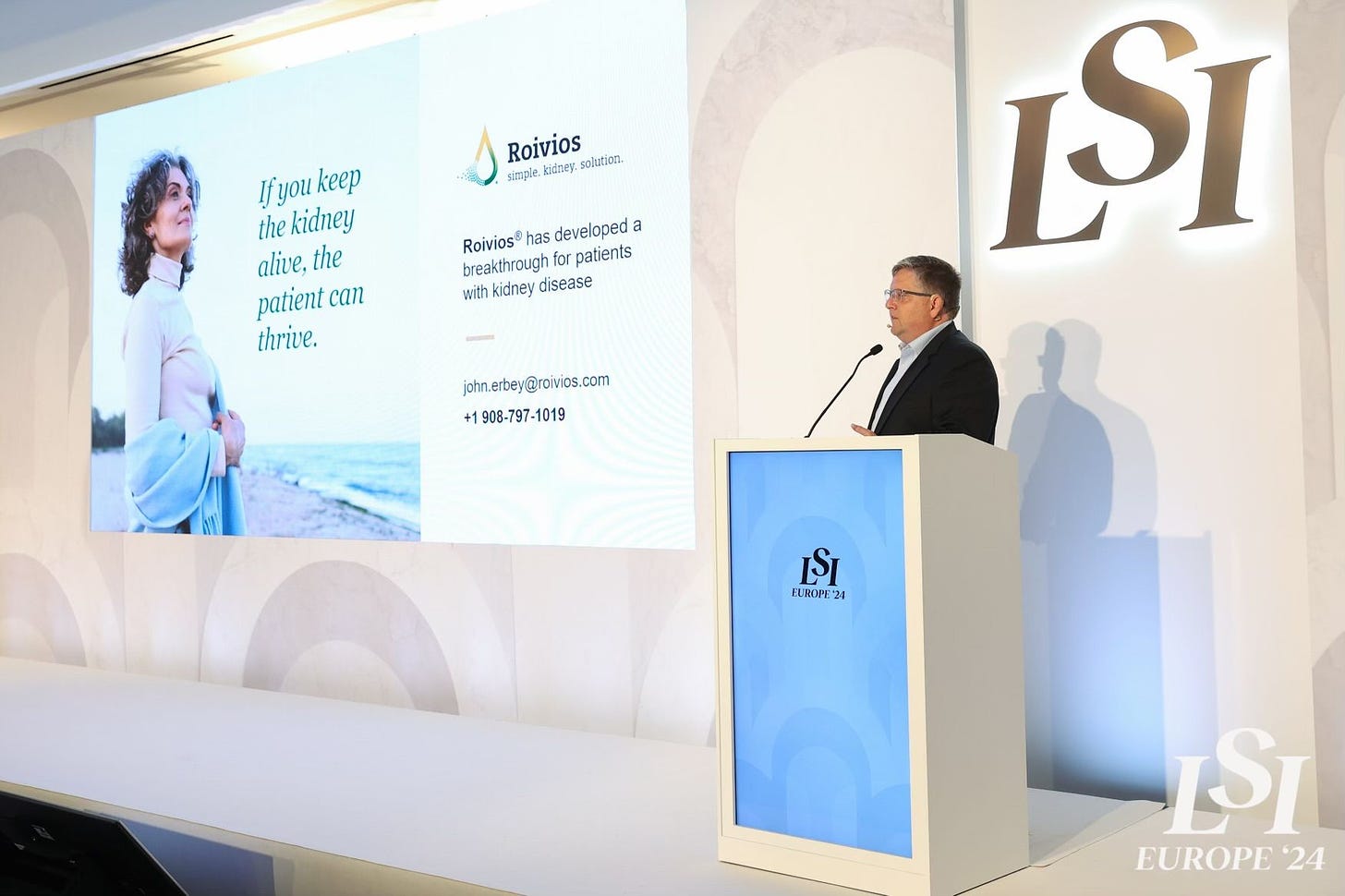
Get Involved
Apply to become a Signals sponsor 🚀: We're accepting applications from companies in the Kidneyverse looking to expand their footprint, achieve key milestones, and position themselves for growth. Join us and showcase your brand to a community of 12,000+ monthly readers across industry, investment, academia, advocacy and government.
Kidneyverse Careers Job Board 💼: Explore top job opportunities across kidney care, from startups to established industry players. Whether you're hiring or looking for your next move, Kidneyverse Careers is the place to connect with top talent and cutting-edge companies. Have an open role you want sent out to our community? Submit it here.
Submit News & Tips to the Signals Inbox 📬: Got a story, tip, or update that should be on our radar? Send it our way through the Signals Inbox. Your contributions help shape the conversation and keep the community informed on the latest developments.
Join Signals Live Audio Events 🎙️: Participate in our next monthly Signals Live session on LinkedIn, where we discuss the latest trends, innovations, and news in kidney care. These drop-in audio events offer the chance to engage with industry leaders and share your insights in real time.
###
![Signals From [Space]](https://substackcdn.com/image/fetch/w_80,h_80,c_fill,f_auto,q_auto:good,fl_progressive:steep,g_auto/https%3A%2F%2Fsubstack-post-media.s3.amazonaws.com%2Fpublic%2Fimages%2F55686857-6b99-45a6-ac0f-09c9f023f2a0_500x500.png)
![Signals From [Space]](https://substackcdn.com/image/fetch/e_trim:10:white/e_trim:10:transparent/h_72,c_limit,f_auto,q_auto:good,fl_progressive:steep/https%3A%2F%2Fsubstack-post-media.s3.amazonaws.com%2Fpublic%2Fimages%2F4d588ac1-7fac-4bd4-829d-fc7b4e8f1326_1512x288.png)
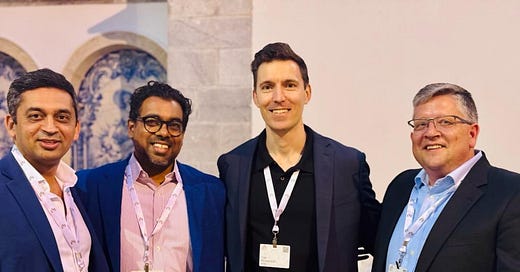
![Signals From [Space]](https://substackcdn.com/image/fetch/w_36,h_36,c_fill,f_auto,q_auto:good,fl_progressive:steep,g_auto/https%3A%2F%2Fsubstack-post-media.s3.amazonaws.com%2Fpublic%2Fimages%2F55686857-6b99-45a6-ac0f-09c9f023f2a0_500x500.png)

